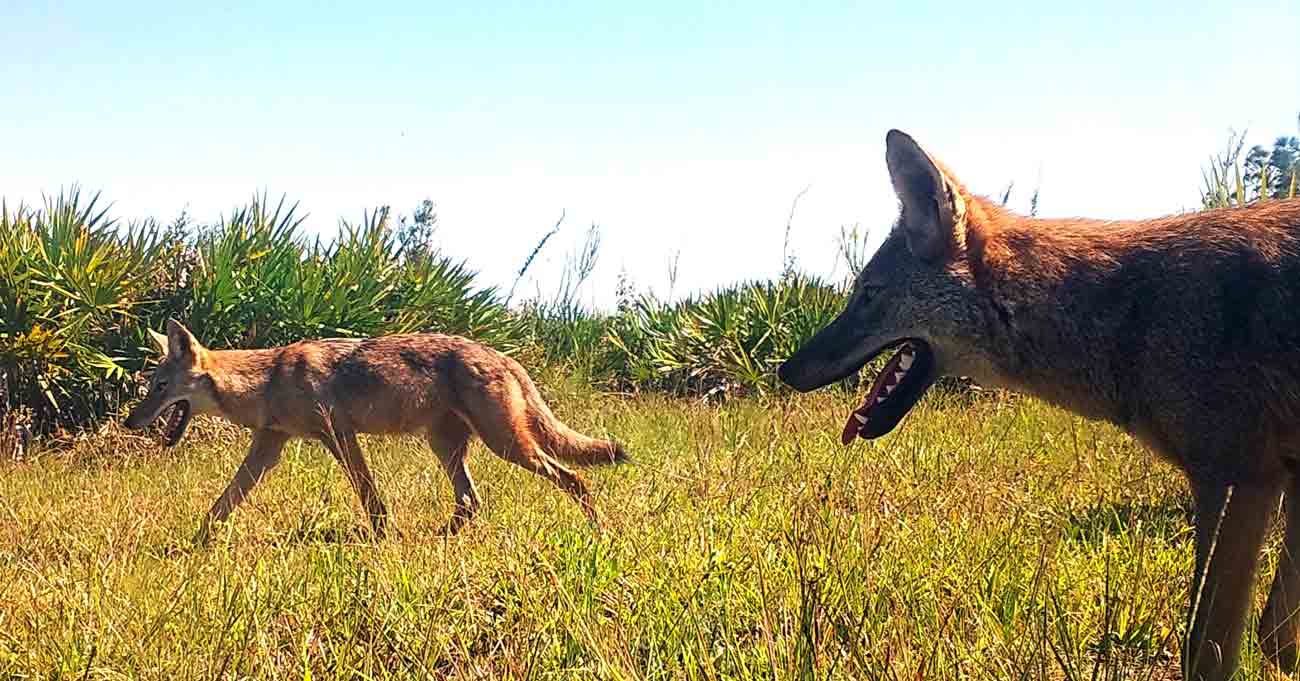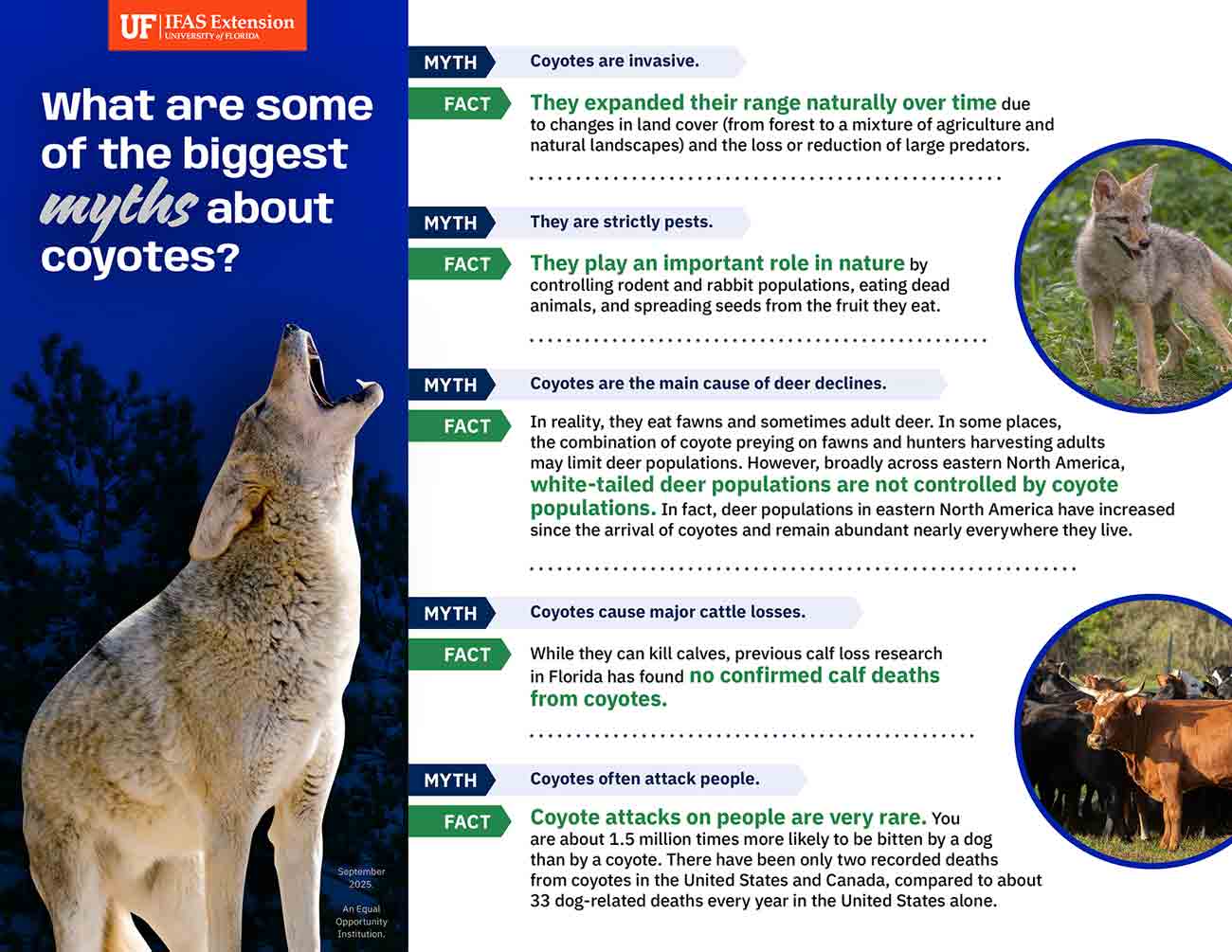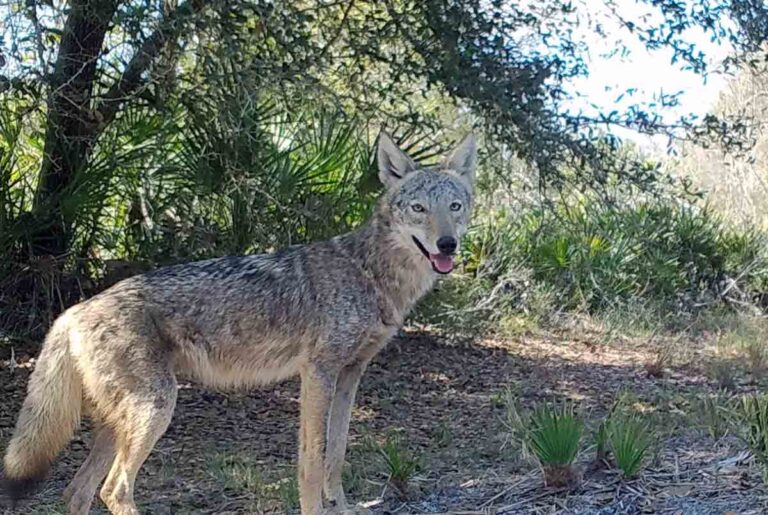FLORIDA — A University of Florida wildlife ecologist is dispelling myths about coyotes, from their behavior in cities to concerns about livestock predation, according to a UF Institute of Food and Agricultural Sciences (UF/IFAS) release.
Hance Ellington, an assistant professor of wildlife ecology and conservation at UF’s Range Cattle Research and Education Center, said his work focuses on learning how coyotes live and how to reduce conflicts with people. He has studied them since 2010, first during his Ph.D. research at Trent University in Ontario and later through postdoctoral work at The Ohio State University, UF/IFAS reported.
“I enjoy studying coyotes because they are smart and adaptable animals that can live in many different places and show a plethora of behaviors,” Mr Ellington said.
“They are also involved in many conflicts with people. Learning more about their behavior and ecology can help us find better ways to reduce these conflicts, which is one of the main goals of my research and Extension programs.”
Coyotes are found almost everywhere in Florida, UF/IFAS noted. Populations are larger where food is plentiful and where large predators such as Florida panthers or Burmese pythons are scarce.
Coyotes also live in suburban and urban areas, Mr Ellington said, where they avoid people unless they become accustomed to human food sources. Their diet includes fruits, nuts, rodents, rabbits, reptiles, insects, and carrion, along with pet food and garbage in developed areas.
According to Ellington, coyotes sometimes prey on cats and small dogs, especially at night. He advised that dogs should be kept on short leashes in parks and wooded trails, and cats should be kept indoors.

Although some residents fear attacks, Mr Ellington said such incidents are rare. He cited data showing that across the United States and Canada, coyote bites average about three per year, compared to roughly 33 fatal dog attacks annually in the United States.
He added that coyotes fed by humans may lose their fear of people, creating more risk, particularly for small children. Aggressive coyotes should be reported to the Florida Fish and Wildlife Conservation Commission, he said.
UF/IFAS reported that two University of Florida studies tracked 711 newborn calves on five ranches in Collier, Hendry, and other Southwest Florida counties. The research found no confirmed cases of coyote predation.
While coyotes can kill calves, goats, and sheep, Ellington said they also scavenge animals that die from other causes, which can make predation seem more common.
Coyotes are less likely to attack calves because they typically have many other food sources, and cows often defend their young, Mr Ellington noted. Still, he said that individual coyotes or family groups could learn to prey on calves at a specific ranch.
Ellington and his team are currently studying how coyotes move and forage in rangelands, forests, and cities. He said the research seeks to explain how coyotes choose travel routes, whether they follow natural cover, avoid busy roads, or move toward food-rich areas.
This knowledge, Mr Ellington said, could help predict where conflicts with people are most likely and guide management strategies.
“Coyotes are part of the Florida ecosystem and play an important role in nature by controlling rodent and rabbit populations, eating dead animals and spreading seeds from the fruit they eat,” Ellington said.








